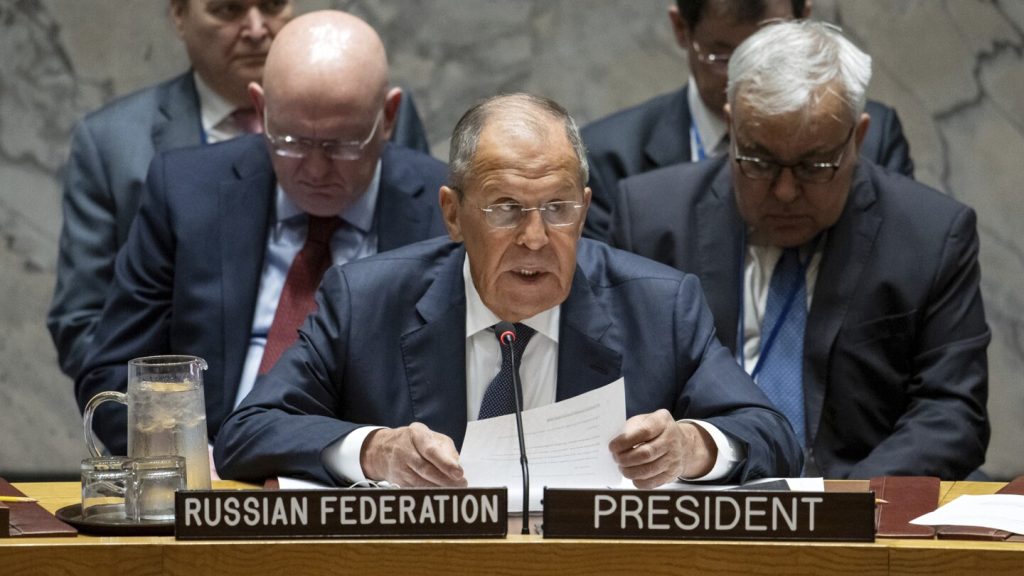Throughout Russia’s presidency of the United Nations Security Council this month, tensions have been high between Moscow and the West. Since Russia’s invasion of Ukraine in violation of the U.N. Charter, the divide between Russia and the U.S. and its allies has been on full display. The public animosity was evident even in formalities, with the U.S. deputy ambassador refusing to address Russian officials with the title of “Mr. President.” The verbal clashes between Russian and Western diplomats have been a common sight in council meetings, with both sides exchanging criticisms and accusations.
During a meeting chaired by Russian Foreign Minister Sergey Lavrov, Russia pushed for a more democratic world order with multiple centers of power, prompting backlash from Western ambassadors. Lavrov criticized the U.S. for declaring its own exceptionalism and denounced NATO’s expansion in Europe. In response, U.S. Ambassador Linda Thomas-Greenfield accused Russia of violating core U.N. Charter principles, while Britain’s Ambassador Barbara Woodward condemned Russia’s military actions in Ukraine. The exchange of heated remarks highlighted the deep rift between Russia and the West on various global issues.
At various Security Council meetings, Russia has accused the U.S. and its allies of destabilizing countries like Syria, while Western diplomats have pointed out Russia’s violations of international law and its role in conflicts. The council also discussed Western weapons supplies to Ukraine, with Russia facing accusations of receiving arms from sanctioned countries. Despite the ongoing tensions, Russia’s ambassador invited other council members to a retreat to discuss the qualifications of individuals briefing meetings on Ukraine, showcasing efforts to engage with counterparts in a different setting.
Amidst the ongoing disputes, Russia’s presidency of the Security Council has faced challenges, including an emergency meeting over a missile strike on a children’s hospital in Ukraine. While Russia denies responsibility for the incident, the U.S. and other nations blame Moscow for the attack. Despite differing views on the outcome of Russia’s presidency, the Crisis Group’s U.N. director noted that the month has been marked by diplomatic clashes and incendiary speeches, signaling the ongoing struggles between Russia and the West. Despite efforts to maintain council business, clashes between Russia and the U.S. and its allies continue to impact global dynamics.
Overall, Russia’s presidency of the Security Council has been characterized by heightened tensions with the West, particularly over issues like Ukraine, Syria, and the global order. The divide between Russia and the U.S. and its allies has been evident in public exchanges and formal interactions, reflecting the deep-seated disagreements on various international matters. As Russia navigates its role on the council, the ongoing disputes and diplomatic clashes highlight the challenges of maintaining international order and cooperation in the face of geopolitical rivalries and conflicts.


